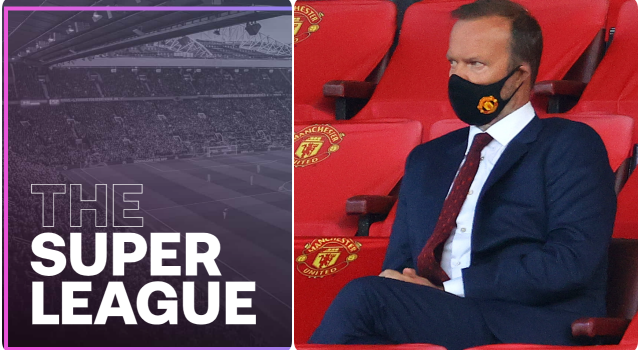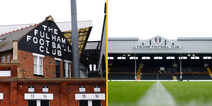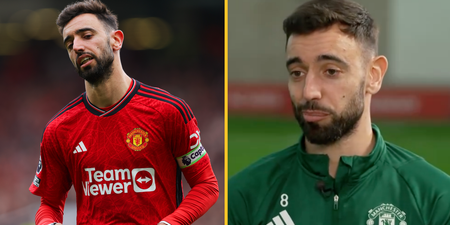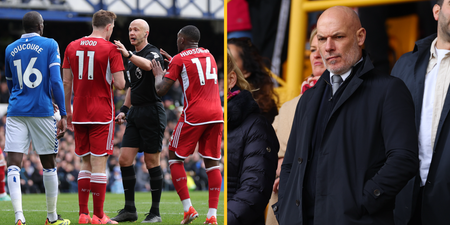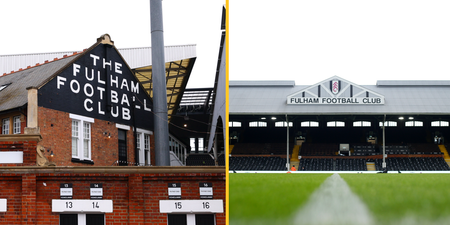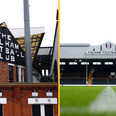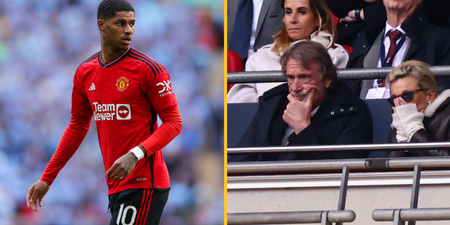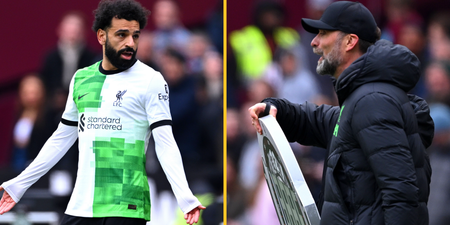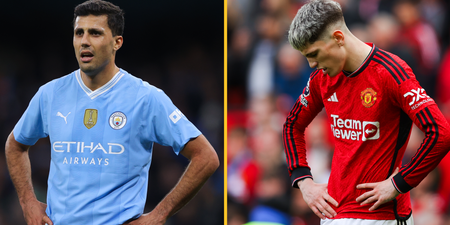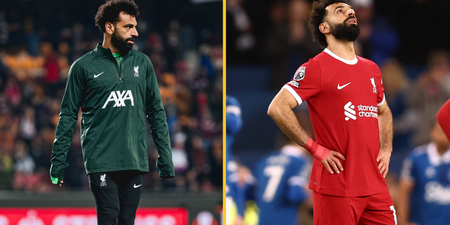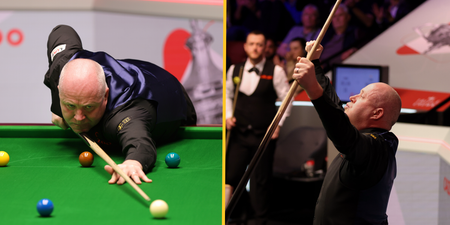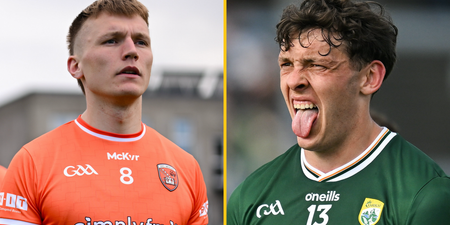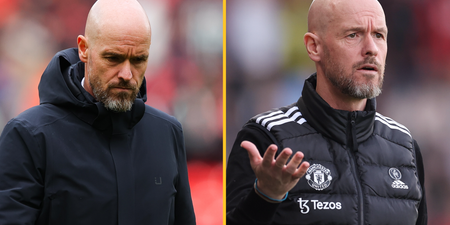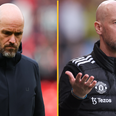The reaction to the Super League has been a resounding NO – here’s why:
Fans and footballing people across the board were up until the early hours of last night awaiting an official announcement regarding the Super League, the breakaway league which has been touted on and off over the past couple of years with no concrete evidence up until this point.
However, following this latest update, it looks like the controversial competition is genuinely happening and those throughout the footballing world have been left reeling. Gary Neville went viral with his immediate condemnation of the plans; he wasn’t the first by any means and he certainly won’t be the last.
😡 | "I'm a #MUFC fan and I'm absolutely disgusted."
💥 | "They are an absolute joke."@GNev2 gives a brutally honest reaction to reports that England's biggest clubs are expected to be part of plans for a breakaway European Super League. pic.twitter.com/VfJccHgybc— Sky Sports Premier League (@SkySportsPL) April 18, 2021
It’s one of the biggest watershed moments in football and sport, in general, perhaps since the formation of the Premier League. People will no doubt do their damnedest to stop it in its tracks but what is it, exactly, that makes the Super League so undesirable and why are people opposed to it?
What is the European Super League?
The Super League is essentially a ‘closed shop’ continental competition. As per the official Super League announcement: it will feature a total of 20 clubs, with the 12 ‘founding clubs’ selected on the basis of their ‘historic success’ and apparent European record throughout football history, with a further three to be added sometime soon.
However, it is fair to say that these parameters are pretty flexible and the general consensus seems to be that the decisions over which clubs to include are largely dominated by money, rather than supposed pedigree and past achievements. Two major European footballing countries aren’t even included.
Bayern Munich (one of the most decorated clubs in European football and still the reigning European champions) have chosen to abstain, regardless of their wealth – PSG having done the same, despite being almost infallible domestically for the better part of a decade. Some of the clubs set to be in the tournament have never even won a European Cup…
Who is in it?
As it stands, this is the full list of European Super League teams so far, though (as mentioned) other clubs will be added and a further five will qualify each season:
- AC Milan
- Arsenal
- Atletico Madrid
- Barcelona
- Chelsea
- Inter Milan
- Juventus
- Liverpool
- Manchester City
- Manchester United
- Real Madrid
- Tottenham Hotspur
The league looks to be not only a direct competitor and possible replacement to the Champions League, given statements from UEFA, leagues around Europe – as well as a slightly tamer one from FIFA – but an affront to domestic leagues and the European Club Association (ECA) in general.
The conflicts of interest are clear and, as such, Arsenal and Manchester United have even resigned from the ECA and, furthermore, United vice-chairman, Ed Woodward, has also stepped down from his role at UEFA.
How does it work?
As founding members, the 15 teams in question – three of which have yet to be confirmed – will never be relegated and, each year, there will be a further five teams that qualify from around Europe based on the domestic success in the previous season.
This combined set of 15 core teams will remain year after year. Put simply, it’s kind of a version of the Champions League, except that whereas five teams still have to try and qualify through the traditional means, the ruling majority don’t have to do anything to ensure they get to participate in the competition.
There is also a complicated coefficient aspect, which would see additional places given to clubs based on their UEFA rankings, despite the competition itself being entirely separate from the organisation.
The 20 teams will be broken into two groups of ten clubs each, playing home and away fixtures within the group each year. Then after the group stages have ended, eight clubs will qualify for a knockout tournament, playing home and away until the competition ends in a single-match Super League championship. The clubs are describing it as “a dramatic four-week end to the season”.
Much like existing European competitions, Super League games will be played midweek and the plan is for all clubs involved to still remain in their domestic leagues. However, a warning has been issued that all those involved in the new tournament could be banned from other UEFA and FIFA competitions, including players not even being able to represent their country.
It is being tipped for an August start date; the top three in each group automatically qualifying for the quarter-finals and those who finish fourth and fifth will then compete in a two-legged play-off for the remaining quarter-final positions. The final is expected to be played around some time in May.
The reaction
It’s fair to say that the response to the Super League has been met with almost universal objection, with overwhelming public outcry from fans, players and pundits; ex-pros, non-football followers and politicians alike, categorically declaring it a bad idea that will deeply damage the larger footballing pyramid.
Do you want a European Super League?
— FootballJOE (@FootballJOE) April 18, 2021
Aside from high-profile sporting personalities like Neville, Rio Ferdinand, Gary Lineker and so on, even Prime Minister Boris Johnson has come out against the proposal:
The clubs involved must answer to their fans and the wider footballing community before taking any further steps. (2/2)
— Boris Johnson (@BorisJohnson) April 18, 2021
Furthermore, Culture Secretary Oliver Dowden re-emphasised concerns that “this plan could create a closed shop at the very top of our national game”, adding that “[w]e have a football pyramid where funds from the globally successful Premier League flow down the leagues and into local communities […] I would be bitterly disappointed to see any action that destroys that”.
The rationale being deployed across the board is that this is an entirely financially motivated move, with each club expected to earn approximately $425 million by signing up.
Not only will this deeply affect the footballing pyramid and the grassroots game – with millions supposedly trickling down the divisions each year – but the belief is that it flies fundamentally in the face of what football and sport, as a whole, is about: competition.
In this current format, three-quarters of the teams who already stand in a more financially viable position (and therefore have more means to succeed through signings, youth recruitment, facilities etc.) don’t need to do anything to play in the Super League. On the other hand, the remaining five must try and qualify based on merit in a structure that is set up to diverge from that.
The larger point of this story is that as well as further hampering meritocracy – despite clubs only have gained their reputations and silverware through these means, to begin with – it is once again a reminder that football is a business first and foremost, and becoming less and less about the fans that sustain it. Several supporters trusts have spoken out:
The concept of a new Super League featuring some of the top clubs in Europe has led to an angry reaction from many football fans
— Sky Sports News (@SkySportsNews) April 19, 2021
Sir Matt Busby’s iconic quote, “football is nothing without fans” has been resounding ever since the statement was released and those words, ironically, feature on the banners currently lining the ground of one of the complicit clubs, Manchester United.
The feeling is that steps like this do not reflect the sentiment that has been echoed throughout the years, especially during the Covid-19 pandemic, where fans have been unable to attend games.
While the Super League – which has just launched its official website – will continue to take shape over the comings days, weeks and months, the efforts to try and resist this reform will accompany it.
UEFA has already laid out plans for a new Champions League format in 2024 following the announcement and further adjustment will no doubt be made as teams and governing bodies figure where they fit in all this mess.
WATCH: Liverpool BOTTLED the title race 🤬 | Who will win the Premier League?
